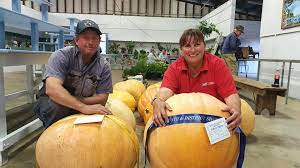
Farmers leading the change: regenerating soil and soul
This article, just published in a special issue of the global publication Sustainability Science, is based on research into the experiences of beef and sheep farmers in NSW Australia. It’s about how farmers’ negative experiences with agrochemicals and their positive experiences with the microbiome motivated them to transition from conventional to regenerative agriculture
Dr. Hannah Gosnell, Ph.D., Professor of Geography, College of Earth, Ocean and Atmospheric Sciences, Oregon State University focused her research on understanding what motivates farmers to adopt ‘climate-smart’ regenerative practices. She aimed to support the development of the right policies, incentives, outreach, and support mechanisms.
With a little help from her Aussie Regenerating Agriculture friends (see ‘Changing Paradigms‘) who provided their time and input ,and as she writes: ‘encouraged me to get this finished!’, Dr. Gosnell takes a holistic approach into what influenced farmers individually and communally to regenerate soil and soul alike.



Regenerating soil, regenerating soul: an integral approach to understanding agricultural transformation Here’s a link to the PDF. Please share with anyone who might be interested: https://rdcu.be/cnhkB
Abstract
A key finding is that negative experiences with agrochemicals associated with increasing costs and declining results were an important driver of change. And the positive experiences when learning about the microbiome and practicing ecological approaches to fertilisation and pest control, engendered enthusiasm and a commitment to transition away from high-input agriculture. Also a conviviality associated with communities of practice, e.g. microscope groups, played an important role in the transition process, as farmers solidified new identities and participated in ongoing social learning.



Based on these results, Dr Gosnell argues that farmers’ feelings of kinship with nature (animals, plants, microbes) resulting from learning about and working with soil are under appreciated drivers of behavioural change and powerful leverage points for larger-scale social-ecological transformation and the emergence of institutional and systemic change.



